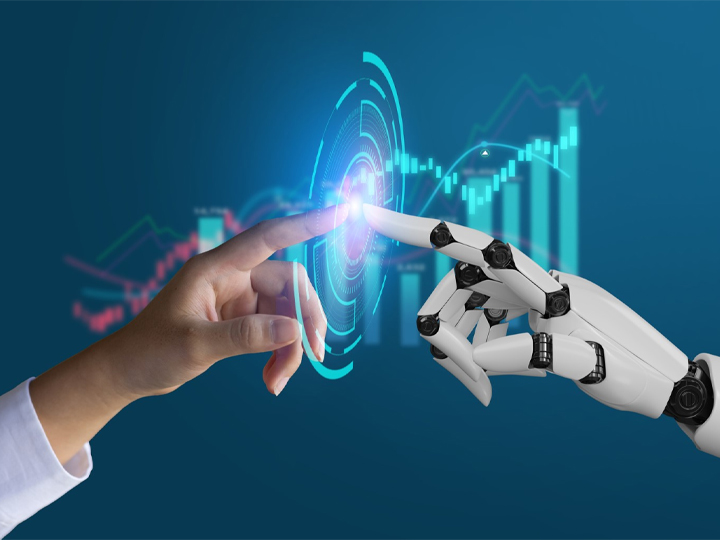Mark III Systems' Introduction to Machine Learning and AI: Session One

The webinar, produced in collaboration with the University of Houston’s HPE Data Science Institute was conducted largely by Mark III’s Principal Data Scientist, Michaela Buchanan. She was introduced by Mark III’s VP of Strategy and Innovation, Andy Lin. Lin introduced Mark III Systems, stating that the solutions provider has “a strong interest in helping research organizations develop their AI.”
Buchanan’s webinar was incredibly digestible for those with no background in data science, and even began with a breakdown of terms which provided a helpful foundation for the actual process of running the synthetic data at the end of the webinar.
AI, Buchanan described, is the largest entity in comparison to ML and DL. Buchanan defined AI as “a technique which enables machines to mimic human behavior.”
“One definition of AI is your sci-fi trope of not being able to distinguish a cyborg from a human,” Buchanan stated. But in our everyday encounters with AI, it more likely performs tasks akin to distinguishing the image of a cat from the image of a dog.
The second largest concept, which Buchanan demonstrated as a circle within the circle of AI, is ML. Machine Learning is “a subset of AI techniques which use statistical methods to enable machines to improve with experience,” Buchanan shared.
Lastly DL was visualized as the smallest circle within the circle of ML, which is within the circle of AI. Deep Learning is “the computation of multi-layer neural networks,” Buchanan stated. During Deep Learning, data scientists are identifying the type of algorithm that is being used. “This,” Buchanan said, “is the neural network.”
Buchanan moved on to explain the difference between Machine Learning and Traditional Programming. Through the use of diagrams, Buchanan demonstrated that Traditional Programming is the process that consists of taking data and turning it into usable output. In this situation, the data scientists will input rules for the machine to follow, in order to generate the output. However, the process of Machine Learning consists of machines filling in the blanks. In this process, the data scientist will give the computer the data and the output, and the computer will generate the rules needed to produce the outcomes provided.
The type of ML mentioned in the comparison between ML and Traditional Programming is referred to as “Supervised Machine Learning.” Buchanan explained that there is “Unsupervised Machine Learning” and “Reinforcement Learning,” before demonstrating the different ML algorithms that she eventually ran at the end of the webinar.
The ML algorithms that Buchanan mentioned were: “Linear Regression”, “Decision Trees”, “Random Forests” and “XGBoost.” Following the explanation of algorithms, she went on to explain the process of “Predictive Maintenance”; the practice of predicting when you should run maintenance based on the sensors that alert you to issues or machine failures.
Buchanan began the next part of the workshop by explaining the set-up procedures to users. This included the introduction to synthetic data sets, the process of printing out the data types, deciphering usable numbers, utilizing pop off functions to remove product ID and type from the data set and removing blank spaces or duplicates before running the algorithms.
Buchanan ran each algorithm, checking for accuracy as well as an honest failure prediction rate. While accuracy was high with most of the algorithms, only “XGBoost” reported a high accuracy rate as well as an honest prediction report rate.
Lin and Buchanan encouraged curious individuals to monitor the AI Education Series page for upcoming sessions and webinar replays. The next session will occur in June and is focused on Deep Learning.